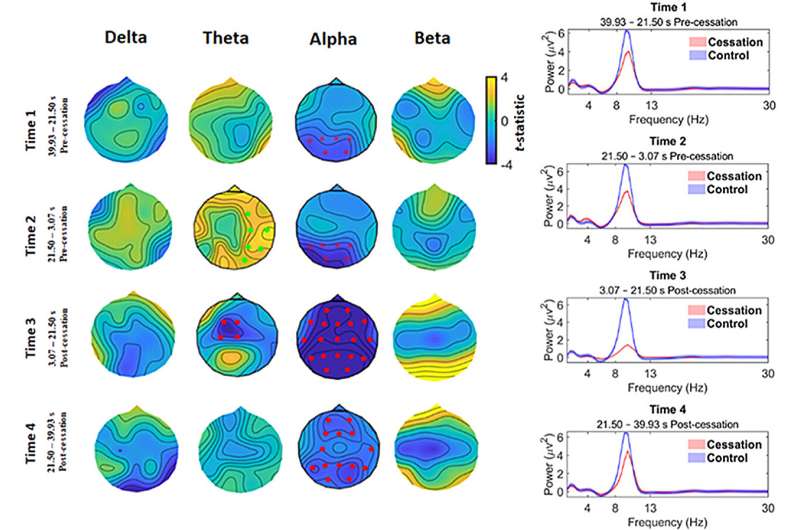This article has been reviewed according to Science X's editorial process and policies. Editors have highlighted the following attributes while ensuring the content's credibility:
fact-checked
peer-reviewed publication
proofread
Can experienced meditators voluntarily turn off their consciousness?

A study reveals that experienced meditators are able to voluntarily modulate their state of consciousness during meditation. In other words, they have the unusual ability, without the use of drugs, to induce a momentary void of consciousness during cessations through large-scale modulation of brain activity.
In what situations can a human being lose consciousness? An anesthetization, brain concussion, intoxication, epilepsy, seizure, or other fainting/syncopal episode caused by a lack of blood flow to the brain can cause total loss of consciousness. But can unconsciousness be induced without the use of drugs?
In the event known as cessation (or nirodha, according to Tibetan Buddhist terminology), the meditators briefly lose consciousness, but upon re-awakening, they are said to experience significant changes in the way their mind works, including a sudden sense of profound mental and perceptual clarity.
Matthew Sacchet, together with researchers from Australia, the Netherlands, and the United States, realized that the idea that a meditator has the ability to "turn off" consciousness could have broad implications for our understanding of how cognition works, but they also found that previous research on cessation had several limitations, namely the fact that few expert meditators have reached the level of meditation where cessations occur, and that cessations are also difficult to predict.
In the article "Investigation of advanced mindfulness meditation 'cessation' experiences using EEG spectral analysis in an intensively sampled case study," published in November in the journal Neuropsychologia, the authors reveal that, in this intensive case study, they overcame these challenges by recruiting one expert meditator who reported being able to enter and report multiple cessation events as they emerged throughout repeated meditation sessions.
The researchers used a neurophenomenological approach in which the "first-person" descriptions of the cessations are related to objective neuroimaging data. In other words, the expert meditator systematically evaluated the mental and physiological processes (context, input, event, output, after-effects) as he experienced them, and these evaluations were used to group and select events for subsequent EEG-based analysis.
Spectral analysis of EEG data surrounding the participant's 37 cessation events recorded in 29 sessions made it possible to relate the cessations to objective and intrinsic measures of brain activity related to consciousness and high-level psychological functioning.
According to researcher Matthew Sacchet, "these results provide initial evidence for the ability of adept meditators to voluntarily and profoundly modulate their state of consciousness and lay the foundations for further study of these unique states using neuroscientific and other empirical approaches".
More information: Avijit Chowdhury et al, Investigation of advanced mindfulness meditation "cessation" experiences using EEG spectral analysis in an intensively sampled case study, Neuropsychologia (2023). DOI: 10.1016/j.neuropsychologia.2023.108694



















